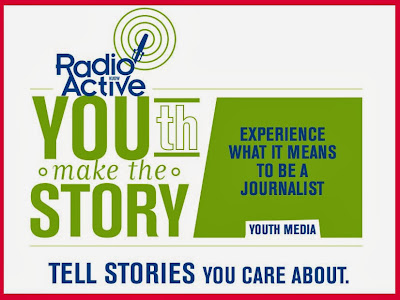The Washington State Library hosts Letters About Literature for students in grades 4-12.
Letter writers compete at three levels: Level 1 is grades 4-6; Level 2 is grades 7-8 and Level 3 is grades 9-12. State judges select the top letter writer in each level and the three winning letters advance to the national competition.This year, entries for Grades 9-12 must be postmarked by Dec. 10, 2013. Entries from children in grades 4-8 must be postmarked by Jan. 10, 2014.
Whether or not students enter the contest, looking through previous year's winning entries might give tutors and students something to talk about. Have you read this book? Do you feel the same way about it as the letter writer? Is there a book that means a lot to you? How would you describe your feelings?
Here, cut and pasted from the website, are links to past winners:
From 2013:
From 2012:
- Cora Tessaro, a fifth grade student at Daniel Bagley Elementary School in Seattle, is the Level 1 state champion. She won $125 from the State Library. Cora wrote her letter to Eric Schlosser about his book Chew on This.
- Julia Batson, a seventh grade student at Woodward Middle School on Bainbridge Island, is the Level 2 state champion. She won $125 from the State Library. Julia wrote her letter to Randa Abdel-Fattah about her book Ten Things I Hate About Me.
- Jordyn Tonkinson, a ninth grade student at Hockinson High School in Brush Prairie, is the Level 3 state champion. She won $125 from the State Library. Jordyn wrote her letter to Garth Stein about his book The Art of Racing in the Rain.
From 2011:
- Clare Doran, a sixth grade student at The Bush School in Seattle, is the Level 1 state champion and one of four national honor award winners. She won $125 from the State Library, a $150 gift card from Target, and a $1000 Reading Promotion grant which Clare has given to the Montlake Elementary Scho0l Library in Seattle. Clare wrote her letter to Jamie Ford about his book Hotel on the Corner of Bitter and Sweet.
- Samantha Smith, an eighth grade student at Blue Heron Middle School in Port Townsend, is the Level 2 state champion and one of four national honor award winners. She won $125 from the State Library, a $150 gift card from Target, and a $1000 Reading Promotion grant which Samantha has given to the Blue Heron Middle School Library. Samantha wrote her letter to Julie Anne Peters about her book Keeping You a Secret.
- Oliver Reed III, a tenth grader at North Central High School in Spokane, is the Level 3 state champion and one of four national honor award winners. He won $125 from the State Library, a $150 gift card from Target, and a $1000 Reading Promotion grant which Oliver has given the North Central High School Library. Oliver wrote his letter to William Ernest Henley about his poem “Invictus”.
- McKenna Conlin, a sixth grader at Benjamin Franklin Elementary School in Kirkland, is the Level 1 champion. She won $125 from the State Library and a $50 gift card from Target. McKenna wrote her letter to Sherman Alexie about his book The Absolutely True Diary of a Part-Time Indian.
- Abby Bateman, a seventh grader at Snoqualmie Middle School in Snoqualmie, is the Level 2 state champion and one of four national honor award winners. She won $125 from the State Library, a $150 gift card from Target, and a $1,000 Reading Promotion grant which Abby has given to the Mount Si High School Library. Abby wrote her letter to Katherine Paterson about her book Bridge to Terabithia.
From 2010:
- John Kang, an eleventh grader at Lakeside School in Seattle, is the Level 3 champion. John won $125 from the State Library and a $50 gift card from Target. John wrote his letter to Mary Paik Lee about her book Quiet Odyssey: A Pioneer Korean Woman in America.
- Reagan Nelson, a 6th grader at Hutton Elementary School in Spokane, has been selected as the state champion and one of two national award winners at Level I. . . . She wins $150 from the Washington State Library, a $550 dollar gift card from Target, and a $10,000 grant for Hutton Elementary School library. Reagan wrote her letter to Laura Ingalls Wilder about her book Little House on the Prairie.
- Stephen Hitchcock, an 8th grader at Overlake School in Redmond, has been selected as the state champion and one of four national honor award winners at Level II. . . . He wins $150 from the Washington State Library, a $150 dollar gift card from Target, and a $1,000 grant for The Overlake School library. Stephen wrote his letter to Jules Verne about his book Twenty Thousand Leagues Under the Sea.
And the website has more, going back to 2006.
- Tyler Christensen, a 12th grader at Mount Si High School in Snoqualmie, is the Level III state champion. Tyler will receive his award of $150 from the Washington State Library, and a $50 gift card from Target at the awards ceremony in Olympia in May. Tyler wrote his letter to Brian Greene about his book The Elegant Universe.
The national program website is here. And you can read lots of great letters there too. A couple of weeks ago, I visited the site with a student and saw this great letter by Alessandra Selassie, a sixth-grade girl who explained how Laura Ingalls Wilder's books helped her understand her father's childhood in Eritrea. Pretty cool!




